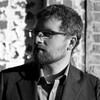Screengrab of Taylor Kitsch as Paul Woodrugh. Photo courtesy of HBO
Advertisement
Advertisement
Vince Vaughn as Frank Semyon in 'True Detective.' Photo by Lacey Terrell. Courtesy of HBO
Advertisement
Rachel McAdams as Ani Bezzerides in 'True Detective.' Photo by Lacey Terrell. Courtesy of HBO
Advertisement
Screengrab of Colin Farrell as Ray Velcoro in 'True Detective.' Courtesy of HBO
